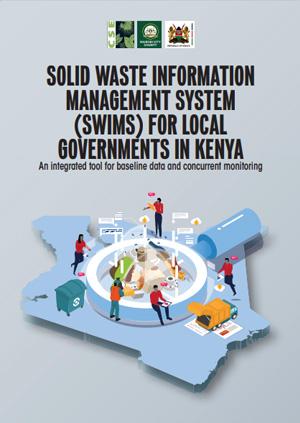Solid Waste Information Management System (SWIMS) for Local Governments in Kenya
October 08, 2025
Generation of urban solid waste is estimated to be increased by as much as 300 per cent in Sub-Saharan Africa (SSA) from 174 million tonnes in 2016, to 522 million tonnes by 2050. About 70 per cent of the current generated waste is dumped in the open or mismanaged otherwise; hence this region is witnessing a burgeoning waste management crisis that is leading to irreversible environmental damage, as well as proving to be a serious economic challenge. The escalating challenge is often manifesting as overflowing dumpsites, polluted waterways, and public health hazards. The poor state of solid waste management is not attributable to a single cause, but is rather the product of a complex interplay of systemic failures. Among these, weak local governance, critical infrastructure deficits, and most fundamentally—a crippling absence of reliable data, form a vicious cycle that impedes effective planning and sustainable solutions.

Share this article